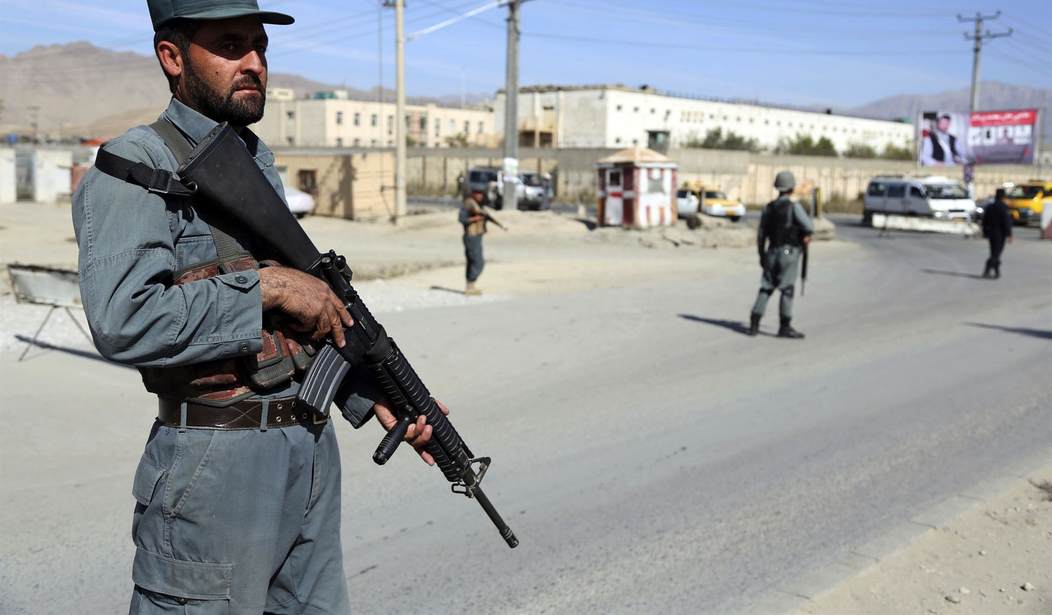A new and conveniently-timed report from the Afghanistan Reconstruction Inspector General found myriad examples of waste and inefficiency over the last two decades of U.S. involvement in Afghanistan. It shows a breakdown in leadership from the top levels of the United States government as personnel on understaffed projects struggled to meet the out-of-touch goals set by far-away brass and bureaucrats in Washington.
The IG's troubling and at times absurd findings focused on "the inability of U.S. government agencies to properly oversee their own projects" which "produced poor results in critical project areas, as various staffers were assigned jobs for which they had little to no training or qualifications." For example, "some police advisors were helicopter pilots and received little formal training in policing."
When U.S. personnel did receive training, it was often "not even Afghanistan-specific," and the resulting deficiency meant that "some police advisors turned in desperation to television shows like 'Cops' and 'NCIS' to become more familiar with policing."
Yep, seeking to meet the goals set by bureaucrats and leaders some 7,000 miles away, U.S. personnel turned to TV shows as they did their best to help the people of Afghanistan. It says as much about the dedication of those on the front lines of the U.S. effort in Afghanistan as it does about the failure of those in D.C. to understand and adequately equip the mission.
Similarly, "when the U.S military recognized in 2009 that it did not have enough civil affairs teams to build infrastructure in contested Afghan communities, it tried to mass-produce these teams by taking chemical warfare response units and giving them four-weeklong PowerPoint trainings, with poor results."
Recommended
You don't say.
And unsurprisingly, when U.S. Navy SEALs and U.S. Marine Forces Special Operations Command personnel who specialize in capture/kill raids were assigned to help build the Afghan Local Police, a task that would normally be the exclusive remit of the U.S. Army’s Special Forces, SIGAR found that U.S. Special Operations Forces often struggled with the critical community engagement aspects of building indigenous police embedded in communities."
As the Inspector General's report makes clear, "The United States approached reconstruction in Afghanistan by first creating and funding reconstruction projects—and only then attempting to locate the individuals needed to carry them out."
"This method works only if the government can continuously draw upon existing talent pools," the report continues. "Once those pools were depleted for Afghanistan, projects were haphazardly staffed with underqualified workers, allowed to go unmonitored, and, in some cases, were outright abandoned."
The federal government — not known for efficiency — mismanaged its talent pool of dedicated individuals who answered the call of duty, disrespecting their talents and putting them in virtually unwinnable situations. Still, those on the ground persevered and did their best, even turning to popular TV shows in order to prepare themselves to help people they barely knew. It makes the Biden administration's humiliating end to the U.S. presence in Afghanistan all the more shameful as it was one last example of how the suits in D.C. — not boots carrying out orders on the ground — bungled our country's withdrawal.

























Join the conversation as a VIP Member